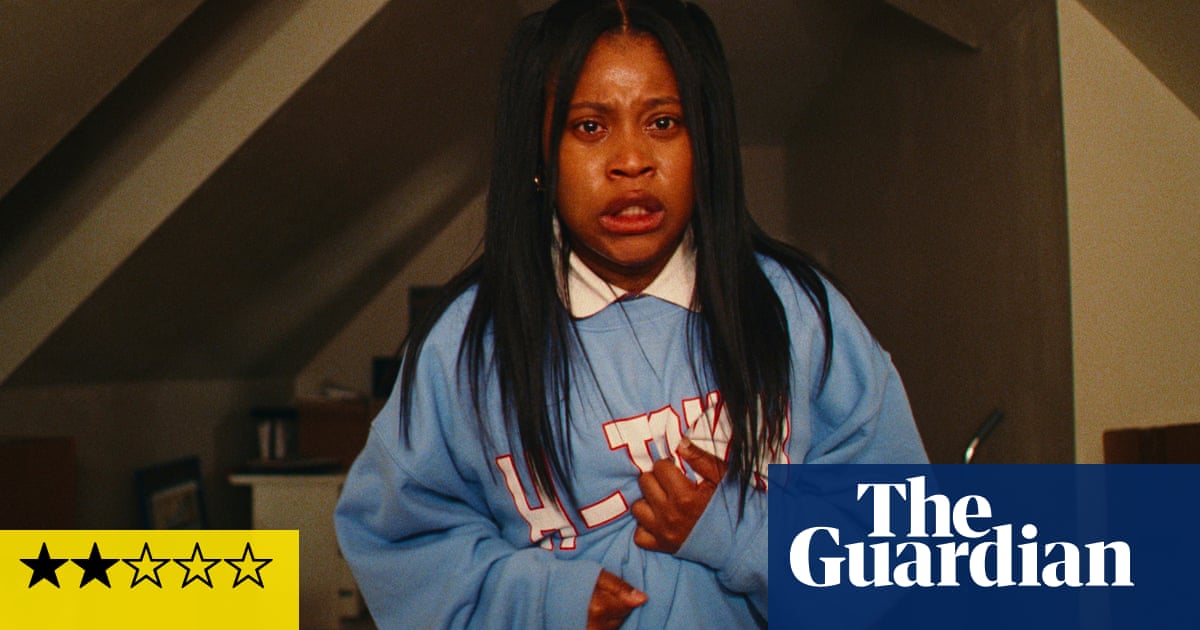
Swarm is the first fruit of Amazon Prime Video’s production deal with Donald Glover, creator and star of the modern classic Atlanta. If that doesn’t make it a must-watch, or at least a must-try, Glover’s parallel career as the rapper Childish Gambino increases the intrigue: Swarm is about the dark side of music fandom, and if anyone can turn that into art, you would think Glover can.
Dominique Fishback is Dre, whom we first meet in Houston in 2016. She is a nobody, living in a drab apartment with her much more capable and confident sister Marissa (Chloe Bailey), working in a sales job that doesn’t suit her in the local mall and spending all her time thinking and posting online about Ni’Jah, a singer clearly styled to resemble Beyoncé. Clumsy, resentful, walking with a flat-footed shuffle and often nearly mute, Dre is fearful of alcohol, drugs and sex, replacing all those vices with an all-consuming love for her fave singer. She gets a new credit card to buy front-row Ni’Jah tickets she is nowhere near being able to afford, and is devastated when Marissa – who used to be as keen a member of the Swarm, the Ni’jah fan collective, as Dre still is – does not want to accompany her to the gig because she is well into her 20s now and has moved on.
The opening episode, the only one directed and co-written by Glover – he is the co-creator of the series, with Janine Nabers, who previously worked on HBO’s Watchmen and Atlanta – sets up a mood of flickering menace. It is slightly reminiscent of 2000’s Requiem for a Dreamin its world of dark streets, knackered convenience stores and listless evenings spent in identikit food courts and vibe-free clubs. Not that Dre ever gets invited out: “You don’t drink,” says a colleague who despises her for looking weird and being bad at her job. “You just watch, it makes me nervous.”
Dre is a slightly patronising cartoon of a lonely outcast, her naivety and awkwardness constantly pushed to the max as she glowers stroppily at everyone. But Swarm is not a straight drama, it’s a serial-killer satire: we can cope with some crude characterisation while we wait for the blood to start spurting and, when Marissa’s relationship with her creepy boyfriend (Damson Idris) ends tragically, we have our inciting incident and a monster is born.
From there Swarm almost becomes an anthology, as Dre pops up in different parts of the US, usually with a new identity because she’s fled the carnage, or sometimes just the deep humiliation, of the previous episode. She works in a strip club, bonding uneasily with her fellow dancers and initially frightening off punters with her clunking gait and insistence on dancing to sad Ni’Jah ballads. She accidentally moves into a commune full of apparently benign white women in touch with their spiritual side. She returns to Houston on a revenge mission in an episode co-written by Malia Ann, Barack Obama’s daughter.
Atlanta used to love a diversion, setting up a new character, bouncing the protagonist off them in an illuminating way and then dispensing of them again within an artfully elliptical half hour. Swarm does that to an extent. It would be good to spend more time with the strippers or the middle-class hippies. The problem is with Dre herself, who never develops as an antihero: we neither cheer her on as she kills, nor feel particularly repulsed. She is driven by grief, by obsession, by her inability to function in society and to some extent by her experience of misogyny, but the show never gets around to saying anything deep about any of those. As Fishback maintains a blank malevolence, Swarm becomes as listless and cold as she is.
The series’ chief concern is Ni’Jah and her toxic superfans, with Beyoncé and her Beyhive surely the subject of the cheeky caption that opens each instalment: “This is not a work of fiction. Any similarity to actual persons, living or dead, or to actual events, is intentional.” In an episode falteringly styled as a true-crime documentary, following the only cop in the US who has identified Dre as the likely culprit for a string of murders, Swarm goes archly meta, with Ni’Jah defictionalised and replaced by the real Beyoncé, her name bleeped out when characters say it but easily lip-readable.
Dre’s proclivity for stalking and killing anyone who ever dissed Ni’Jah in a tweet is clearly a metaphor for some music and TV fans’ fierce reaction to any criticism of their idol, a modern malaise made worse by the intensifying, alienating properties of social media. But this is a dull, obvious observation to hang a show on. It’s the sort of series where you wonder if the ending will unleash a revelation that tells you that you’ve missed the point, but then Swarm ambles over the finishing line, as inert and forbidding as it’s been throughout.
Swarm is on Prime Video now.












